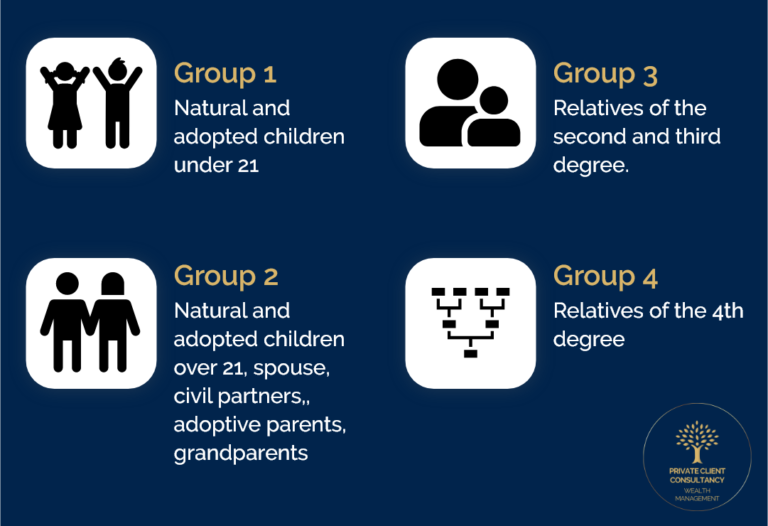Thinking about inheritance tax in the Canary Islands?
A major 2023 reform introduced a 99.9% tax reduction for most families.
This guide details who qualifies, the implications for non-resident expats from the UK and USA, and the essential steps for heirs to navigate the process.

Inheritance tax has long been one of the most debated and misunderstood areas of Spanish taxation.
For many families, especially those with international connections, the fear of a heavy tax bill has historically led to difficult decisions, sometimes even forcing them to renounce an inheritance altogether.
In the Canary Islands, however, a major reform in 2023 has dramatically and positively changed the landscape.
Today, the Canary Islands offer one of the most favourable regimes in all of Spain for passing on your wealth, both through inheritance and lifetime gifts.
While the underlying Spanish tax system has complex rate tables and deductions, the 99.9% rebate introduced in 2023 simplifies the outcome for most families.
This guide focuses on what this change means for you in practical terms.
To understand the scale of this change, it’s important to first know how the system works. Spain applies a national tax called the Impuesto sobre Sucesiones y Donaciones (ISD), which covers both inheritances and lifetime gifts.
While the state sets a general framework, each of Spain’s Autonomous Communities has the power to modify allowances, rates, and reductions.
This has created a patchwork of different rules across the country, where the tax due in one region can be vastly different from another.
In September 2023, the Canary Islands government introduced a groundbreaking change. They approved a 99.9% reduction (bonificación) in the final inheritance and gift tax bill for most close relatives.
In practical terms, this means the tax payable is reduced to a token amount. For example, an inheritance that might once have triggered a €20,000 liability can now result in a bill of less than €20.
This move protects family assets and makes the Canary Islands one of the most attractive regions in Spain for estate planning, alongside areas like Andalusia and Madrid.
For the sake of completeness, and to understand how the final tax is calculated, it’s useful to see the underlying mechanics.
The tax is calculated using a progressive scale, and a multiplier can be applied based on the heir’s pre-existing wealth.
State Inheritance Tax Rates (2025)
| Taxable Base (Up to) | Tax Due on Lower Amount | Rate on Remainder |
| €0.00 | €0.00 | 7.65% |
| €7,993.46 | €611.50 | 8.50% |
| €15,980.91 | €1,290.43 | 9.35% |
| €23,968.36 | €2,037.26 | 10.20% |
| €31,955.81 | €2,851.98 | 11.05% |
| €39,943.26 | €3,734.59 | 11.90% |
| €47,930.72 | €4,685.10 | 12.75% |
| €79,880.52 | €9,166.06 | 16.15% |
| €159,634.83 | €23,063.25 | 21.25% |
| €239,389.13 | €40,011.04 | 25.50% |
| €398,777.54 | €80,655.08 | 29.75% |
| €797,555.08 | €199,291.40 | 34.00% |
An heir’s final bill is calculated based on these rates, and then the 99.9% reduction is applied, virtually eliminating the liability for those who qualify.
The amount of tax you pay depends on your relationship with the deceased. Spanish law classifies heirs into four kinship groups:
In the Canary Islands, the 99.9% reduction applies as follows:
This is fantastic news for the vast majority of families. However, it’s crucial to note that Group IV heirs do not benefit from this reduction and can still face a significant inheritance tax bill.

The Canary Islands are a global destination, and inheritance cases often involve multiple countries.
The tax treatment depends on the residency of the deceased and the heirs, and the location of the assets.
Yes, absolutely.
The residency of the heirs is also a key factor.
If you are a tax resident in the Canary Islands and inherit assets located abroad (for example, a bank account in the UK or shares in the US), you have a dual obligation.
You must handle the inheritance process and also comply with Spain’s foreign asset reporting requirements by declaring the inherited assets on Modelo 720 (Form 720).
The penalties for non-compliance are severe, so this is a step that cannot be overlooked. You can avoid this with a English speaking Spanish lawyer.

Do you need assistance with your inheritance tax in the canary Islands?
The virtual elimination of inheritance tax in the Canary Isldands for most families opens up powerful estate planning strategies.
Parents and grandparents can now transfer assets to children or spouses during their lifetime with negligible tax consequences.
This allows for a gradual transfer of wealth, such as helping a child buy a property.
Remember, while gift tax is reduced, other taxes like Capital Gains Tax may still apply to the donor.
The 99.9% rebate, combined with other generous deductions for the transfer of a family business, makes succession planning far more straightforward.
High-value assets like property portfolios can be passed down without being eroded by tax, preserving your legacy for generations.
For expert guidance on transferring real estate, especially in the Costa Del Sol area, our real estate agents at PCC Property can provide specialist support.
International families, particularly those from the UK or US, can use various structures to optimise their position.
This could involve adjusting property ownership, using joint ownership, or making a Spanish will to ensure heirs can fully benefit from the Canary Islands’ rules and avoid double taxation.
For anyone owning property in the Canary Islands, having a Spanish will is highly recommended.
It simplifies the inheritance process immensely, saving your heirs time, stress, and money.
A Spanish will can work alongside your will in your home country and ensures your assets are dealt with efficiently.
Even with almost no tax to pay, the legal process must still be followed correctly.
For close relatives (spouses, children, parents, siblings, etc.), a 99.9% reduction applies, meaning the tax is practically zero.
More distant relatives and non-relatives (Group IV) do not get this reduction and will pay the full tax.
A deduction reduces the taxable amount of the inheritance before tax is calculated.
A rebate (or reduction) is applied to the final tax bill after it has been calculated.
The 99.9% rebate for inheritance tax in the Canary Islands is powerful because it wipes out the final bill, regardless of other deductions.
Since Brexit, this is not automatic.
Your eligibility will depend on the specifics of the estate and how it is structured.
It is essential to get professional advice to ensure you can apply the regional Canary Islands rules instead of the less favourable state rules.
For heirs in Groups I, II, and III, the tables are largely academic, as the final calculated tax is reduced by 99.9%.
However, they are still used for the initial calculation and are very important for Group IV heirs who do not receive the rebate.
Yes.
As a Spanish tax resident, you must declare worldwide assets you inherit.
This means you will need to file a Spanish inheritance tax return (benefiting from the Canary Islands’ rules) and also declare the asset on the Modelo 720 foreign asset declaration form.
The Canary Islands’ inheritance tax reform has transformed the region into one of the most tax-friendly jurisdictions in Europe for wealth transfers.
For most families, inheritance tax is now a non-issue.
However, this does not eliminate the need for careful planning, especially for international families who face challenges with cross-border laws, double taxation, and residency rules.
This is the perfect time to review your estate plan to:
With professional guidance, the Canary Islands now offer not only a beautiful place to live but also one of the most efficient places in Europe to pass on wealth to the next generation.
Contact PCC Wealth today for a consultation on your cross-border estate plan.


UK State Pension update for EU residents
From April 2026, the rules around voluntary National Insurance contributions for people living outside the UK are changing.
If you live in the EU and expect to rely on the UK State Pension, it may be worth reviewing your position while current options remain available.
Get notified about new articles, latest changes and much more